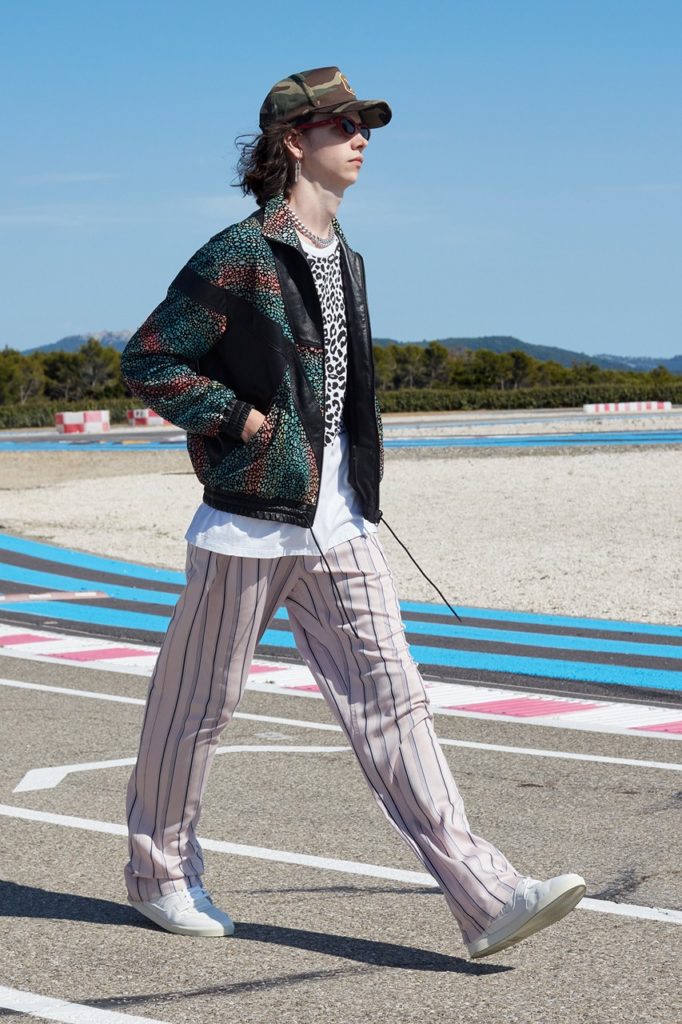
The fashion industry, a realm often associated with glamour and creativity, has found itself under scrutiny for perpetuating racism and inequality. Recently, supermodel Naomi Campbell took a bold stance against such injustices, particularly highlighting an incident at Paris Fashion Week. This article delves into the details of Naomi Campbell’s advocacy, the Paris Fashion Week incident, the historical context of racism in fashion, and the necessary steps to foster inclusivity and diversity.
Naomi Campbell’s Advocacy
Naomi Campbell, an iconic figure in the fashion world, has transcended traditional modeling roles to become a powerful advocate for change. Her influence extends beyond the runway, and her recent endeavors in addressing racism and inequality underscore the need for reform in the industry.
Paris Fashion Week Incident
The incident at Paris Fashion Week, where Naomi Campbell confronted racism head-on, serves as a focal point for discussions on discrimination in the fashion world. This section provides a detailed account of the incident, the reactions it garnered, and its implications for the broader conversation on racism.
Historical Context
To understand the gravity of the issue, it’s essential to explore the historical context of racism in the fashion industry. Instances of discrimination and bias have persisted over the years, shaping an environment that is far from inclusive. Acknowledging this history is crucial in dismantling systemic issues.
Impact on Models of Color
Models of color often bear the brunt of racial biases in the industry. This section sheds light on the challenges faced by non-white models, from limited opportunities to enduring prejudiced beauty standards. The impact of racism on these models is a poignant reminder of the urgent need for change.
Industry Initiatives
While some initiatives aim to address racism in fashion, their effectiveness comes into question. An overview of existing efforts and their impact provides insights into the industry’s commitment to change and the areas that require improvement.
The Need for Diversity
Diversity isn’t just a buzzword; it’s a necessity for the fashion industry to thrive. This section emphasizes the importance of embracing inclusivity and the numerous benefits it brings to creativity, innovation, and global representation.
Influential Voices
Naomi Campbell is not alone in her fight for change. This section highlights other influential figures who are using their platforms to challenge the status quo. The collective efforts of these voices signify a united front against racism and inequality.
Industry Accountability
Addressing racism requires accountability. This section discusses the need to hold the fashion industry accountable for its actions and advocates for transparency and structural reforms to eradicate systemic issues.
Breaking Stereotypes
Stereotypes perpetuated in the fashion world contribute to discriminatory practices. Here, we explore these stereotypes, their impact, and strategies to challenge and break them, fostering a more inclusive industry.
Changing Beauty Standards
Fashion plays a significant role in shaping societal beauty standards. This section examines the industry’s role in defining beauty and argues for a more diverse and inclusive definition that reflects the richness of human diversity.
Social Media’s Impact
Social media has become a powerful tool for activism. Examining its influence in promoting diversity in the fashion industry, we explore both the positive and negative aspects of social media activism and its role in effecting change.
Empowering New Talents
Efforts to empower and promote emerging talents from diverse backgrounds are crucial. This section showcases success stories of models challenging the status quo and advocates for a more inclusive approach to talent discovery and development.
Future of Fashion
Envisioning a more inclusive future for the fashion industry requires collective action. This section explores the role of consumers in driving change and outlines the steps that need to be taken for a lasting transformation.
Conclusion
In conclusion, Naomi Campbell’s bold stand against racism at Paris Fashion Week serves as a catalyst for change. This article has explored the historical context, the impact on models of color, existing initiatives, the need for diversity, and the collective efforts of influential voices. The path forward involves industry accountability, breaking stereotypes, redefining beauty standards, leveraging social media, empowering new talents, and envisioning a more inclusive future.



